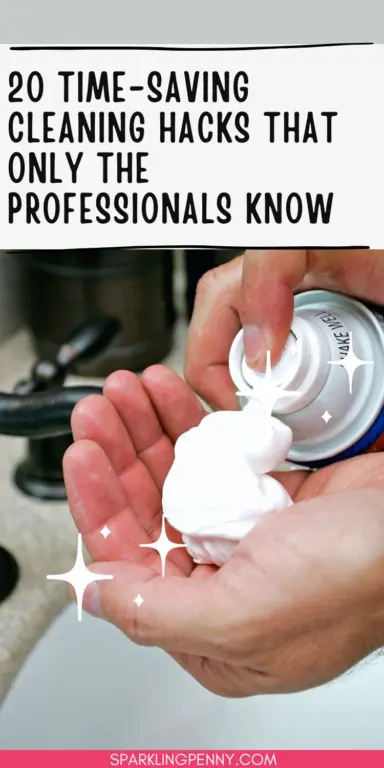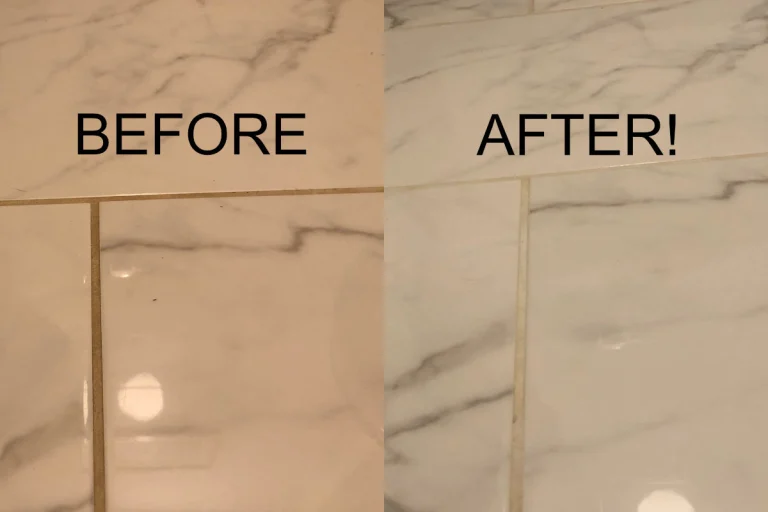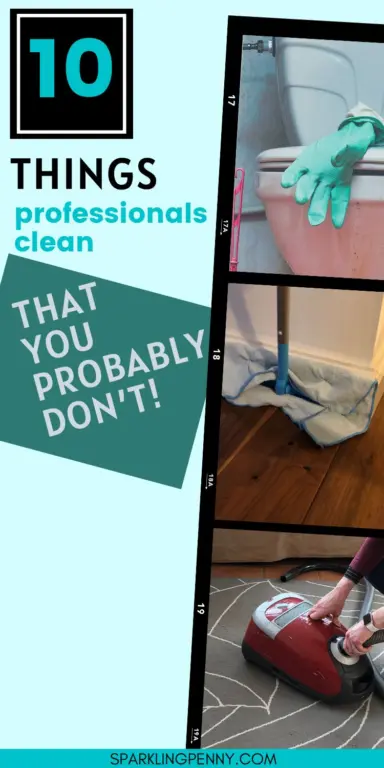When we had three cats in our house, we had quite a big problem with a neighbor’s cat peeing on our front door. It was infuriating, and it seemed like I was forever cleaning up.
Eventually, we moved house, and now we have a single dog. Occasionally a cat will pee on our door, but it isn’t such a nuisance as it was previously
If you have the same problem as I did a few years ago, here is the post I wish I could have read when I was in that predicament!
If your neighbor’s cat is peeing on your front door, clean your door with an enzyme-based cleaner to permanently remove the pee. Simply masking the smell with bleach won’t work. Next, deter the cat from peeing, which you can do using a selection of smells that cats don’t like. If the problem persists, catch the cat, so you can approach the owner and get the cat dealt with.
Even if tomcats have already been spayed, if they are fixed too late, there is no stopping them. Females can spray too, so don’t rule out a female cat as the culprit.
Heads up: I sometimes use affiliate links. When you click these links and make a purchase, I may get a small commission. It won't cost you anything but it helps me to run this site.
Why do cats pee near the front door?
If you have a neighbor’s cat peeing on your front door, it is marking its territory, and it does that by spraying. It’s very probably not using your door as a toilet, but as a way to assert its presence in your neighborhood. To males, the cat is saying that this is his area and to keep away. To female cats, it is saying he wants to mate.
If you have a female cat in the house, it could be that the tomcats are trying to attract it.
If you know who owns the cat, you might also know that it has been neutered and are wondering why you still have the problem.
The unfortunate thing is that neutered male cats can still spray. If they are neutered beyond one year old they may have already got into the habit of spraying which will continue for life irrespective of their fertility.
How to stop your neighbor’s cat peeing on your front door
If you have the issue where you need to stop tomcats from spraying on your front door, your first line of resistance will be to approach the owner and ask them to keep the cat under control. If you find the owner, ask them to neuter the cat. But, remember this isn’t effective if the cat is already in the habit of spraying.
If your request falls on deaf ears, or you don’t know which cat is spraying and where they live, your next option will be to create a deterrent.
Related reading:
- What Smells Deter Cats From Pooping?
- How To Stop Cats Pooping on Artificial Grass Using Natural Methods
- How To Stop Your Dog Peeing On Your Grass
How to deter a cat from spraying
Before you start, thoroughly clean your front door of the pee smell. If your door continues to smell of pee, the cat will continue to use it as their personal toilet, because it smells one. Check out my tips further down this post for getting rid of the pee smell.
Next, I recommend you start with gentle options, such as spraying with a scent that they hate. Then work your way up to the more robust solutions, depending on what you find works for you. This includes entrapping the cat.
Let’s have a look at the options for deterring cats from your front door.
Find a smell that the cat hates
What smells deter cats from peeing on your front door? There are several you could try most of which are quite nice for humans. So if none of these work for you, at least you have a sweet-smelling door!
Essential oils
There are plenty of essential oils that cats do not like to smell, that many people love. Who wouldn’t want their front door smelling of lavender or peppermint?
Essential oils tend to have a very strong scent which can be repellent for a cat, but fortunately, many humans love them.
Make a spray bottle of water and about 20 drops of any of the essential oils below and liberally spray on and around your door:
- Lavender
- Citronella
- Orange
- Lemon
- Peppermint Oil
Reapply regularly.
Cat pheromone
Cats actually like this smell, so you could use it to make them think it is a nice place to be rather than a toilet. Use a product like Feliway which mimics the cat pheromone and has a calming effect on them. The smell is pretty imperceptible to humans if you don’t use too much of it.

Citrus peel
Scatter citrus peel around your front door. Your neighbors might think it’s a bit odd, but it could be worth it to deter the cat! Cats don’t like a strong citrusy smell. If you have some old peels handy, scatter them near your front door. If it doesn’t work for you, move on!
Olbas Oil
Olbas Oil is usually used to cure a blocked nose, but cats hate its very strong smell. Olbas Oil can be harmful to cats, but you can use it as a deterrent safely by soaking some teabags or a sponge in diluted Olbas Oil. Put the teabags or sponge in a plastic container. Pierce some holes in the top of the container to allow the scent to seep out. The Olbas Oil aroma should send the cats away without harming them.
Vinegar
Vinegar might work as a deterrent for your nuisance cat. Since vinegar is something most of us have in the house, it is worth a try. Vinegar smell tends to dissipate fairly quick, so you will want to reapply quite regularly.
Make the area around your front door unwelcoming for cats

Cats hate to walk on hard, pointy things. If it is an option for you, put out some scrunched up aluminum foil, pine cones and rough stones.
We have a spot next to our front door under a bush where next door’s cat likes to sleep. Fortunately, it doesn’t spray on our door. But if it did, I would fill up the bed with pointy stones to keep it away! But we love him, so we don’t mind him being there.
Related reading:
How To Stop Cats Pooping On Gravel
Put out some food
This one might seem odd. Why would you want to feed an annoying cat? However, if you leave some food out, the cat will start to see your front door area as a place to get food rather than pee on.
Have your female cat neutered
If you have your own female cat. It might very well be that a male cat is spraying because it wants to attract and mate with your cat. If your cat isn’t already neutered, consider doing it.
Spray with water
Spraying the cat with water is difficult to do because cats seem to have an inbuilt sense of when you won’t be around. But if you see the cat, spray it with water because they hate it.
What if none of that works?
When I asked my vet about our cat pee problem, she told me to catch the cat, so I could approach the owner.
We caught the cat eventually inside the house by setting the cat flap to ‘in’ only. By that time the problem was getting much worse because it had started to come into the house along with our own cats and had even sprayed inside too! We called the number on its collar. Unfortunately, the owners couldn’t care less about what their cat was doing!
If this happens to you, it is worth checking the laws in your area, you might be within your rights to get the cat compounded if it is a neighborhood nuisance.
I don’t recommend you do what we did to catch the cat. Here is another option that has worked for people:
- Start to feed the cat in a certain area outside your house. Always put the food in the same place. Do this for a week to gain its confidence.
- Meanwhile, buy or borrow a humane animal trap.
- Put the food in the trap.
- You should trap the cat quite easily the next time it comes to feed.
You can then inspect the collar tag and contact the owner or report the cat to the council. What you do depends on where you live and the law. Obviously, do not harm the cat.
How to clean cat spray off your front door

When I had the cat pee problem on my front door, I was forever spraying bleach on it because I thought that was the only way to tackle the problem. Little did I know that bleach is very ineffective when it comes to removing pee. It masked the smell for a while, but it wasn’t long before the pee smell returned, and I had to spray the door again.
Related reading:
What I should have used is an enzymatic-based cleaner.
To effectively remove cat spray from your door you need to neutralize it rather than mask the smell. If you mask it, it will return very quickly, and you will be back to square one. If you don’t remove the pee smell completely cats will come back because the area continues to smell like a toilet to them!
The most effective cleaner is one that contains enzymes. Pee contains enzymes and if you also use an enzyme-based cleaner you can break down the enzymes and thus the smell effectively.
Instead of bleach, you need a cleaner such as biological washing detergent because it contains the enzymes that you need to clean up the urine. You could also check your local pet store for an enzymatic cleaner. If you don’t already use a biological laundry detergent, you might not wish to buy it specially.
To make your homemade pet urine cleaner, add 1 part laundry detergent to 9 parts of water to a spray bottle.
Another option is to use some everyday household products which include vinegar, hydrogen peroxide or baking soda. All three will do the job of removing the pee.
Once applied, scrub the area with a brush or cloth.











